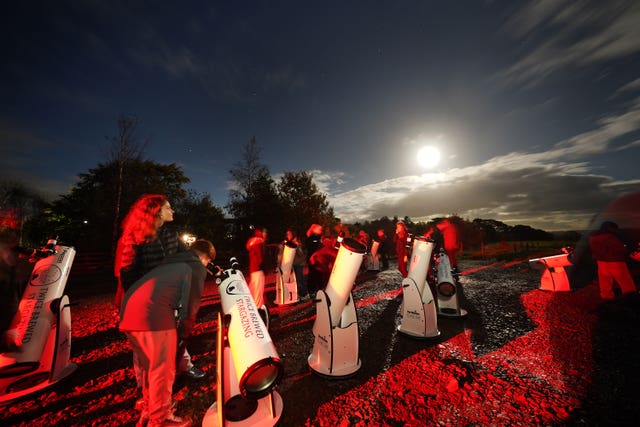
A comet last seen for Earth some 80,000 years ago has been spotted in North-East England.
The C/2023 A3 (Tsuchinshan–ATLAS) comet passed through the dark skies in Northumberland, putting on a show for skygazers armed with telescopes at the Northumberland International Dark Sky Park.
Although discovered in January last year, astronomers said it would last have been visible when Neanderthals were alive.
Comets are made of dust, ice and small rocky particles and are often described as “dirty snowballs”.
They orbit the sun in much the same way as planets but follow a more elliptical path.
As they get close to the sun, the comets begin to warm, causing the more volatile materials such as the gases and ices trapped in the comet to escape from the inside through cracks in the crust.
Astronomers say this can make it hard to foresee the path that a comet will take while passing through the solar system.

Dr Megan Argo, an astrophysicist at the University of Central Lancashire, said: “Comets are notoriously difficult to accurately predict in advance.”
She said these celestial objects can develop “tails” when their nuclei – the rocky and icy core – break apart.
This tail of gas and dust can become “bright enough to easily see with the unaided eye, possibly even during daylight if you know where to look”, she added.
The comet was first seen on September 29 in some countries in the Southern Hemisphere, but came back into view last week, appearing “brighter” in the night skies.
Dr Argo said: “It is important to note here that since comets are fuzzy blobs on the sky, rather than having the point-like appearance of stars, this brightness will be more spread out on the sky.”
For those who missed the Tsuchinshan-ATLAS, astronomers say it may still be visible using binoculars for the next few weeks but after that, a telescope may be required.


Comments: Our rules
We want our comments to be a lively and valuable part of our community - a place where readers can debate and engage with the most important local issues. The ability to comment on our stories is a privilege, not a right, however, and that privilege may be withdrawn if it is abused or misused.
Please report any comments that break our rules.
Read the rules here